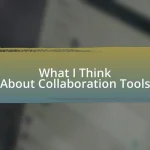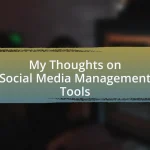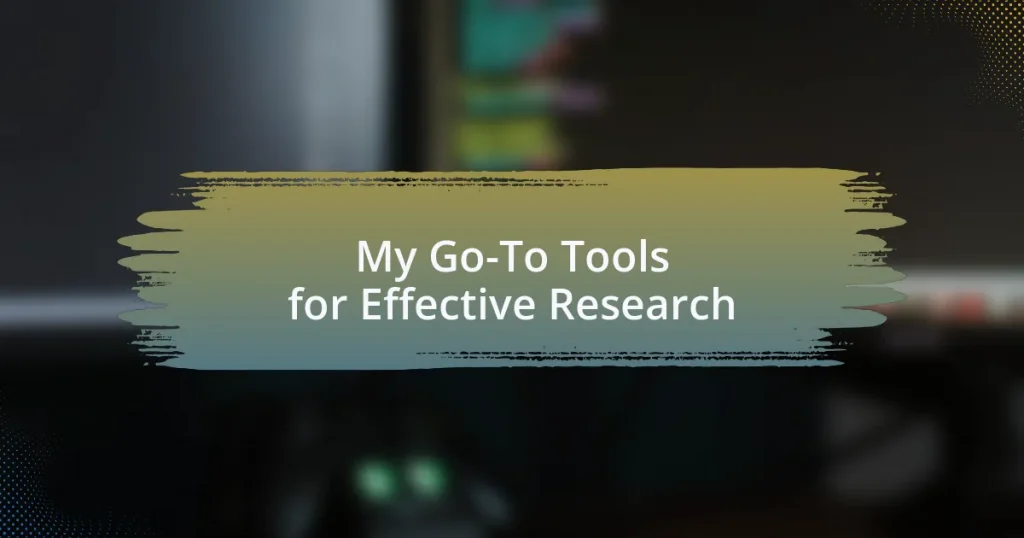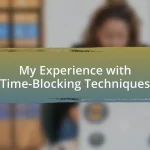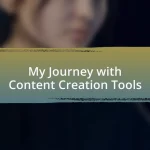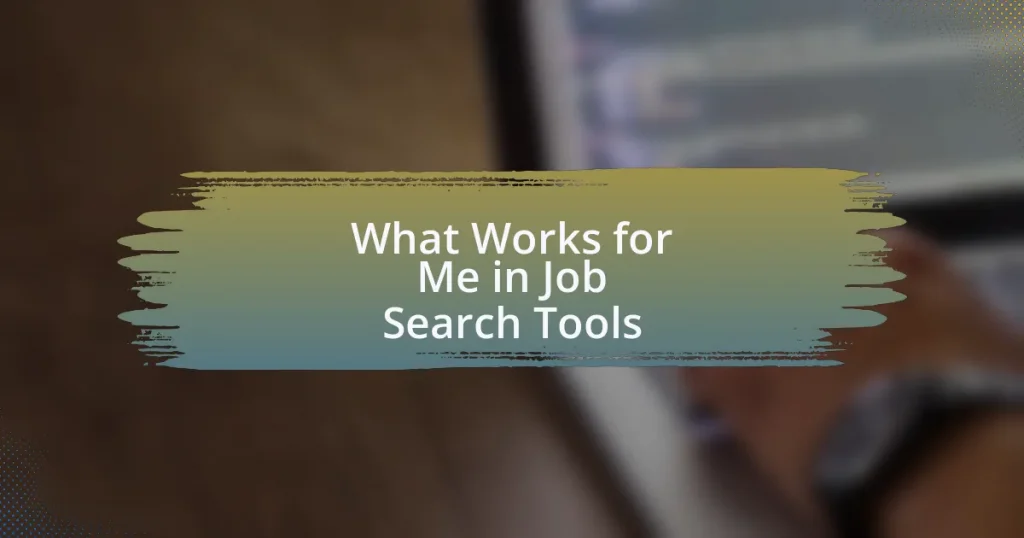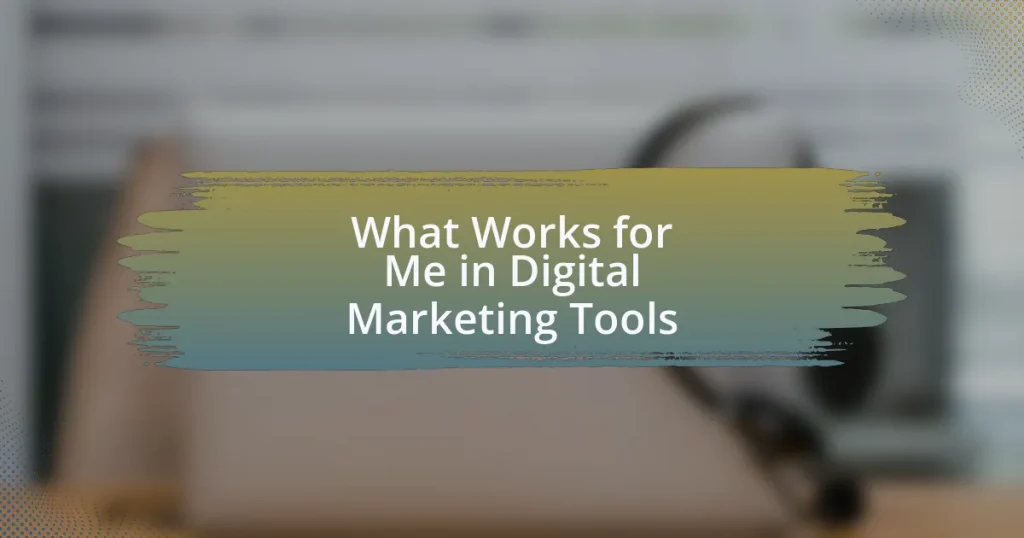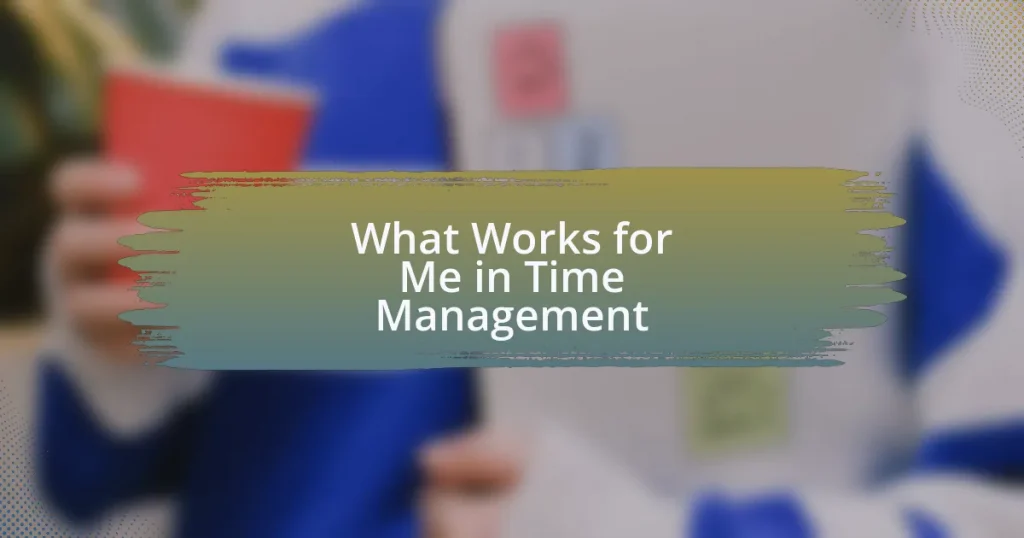Key takeaways:
- Effective research tools are essential for navigating the complexities of web development, aiding in data collection, analysis, and content organization.
- Using collaboration tools and community forums enhances knowledge sharing and innovation, leading to better outcomes in projects.
- Setting specific goals during research helps maintain focus and efficiency, while taking notes aids in retaining crucial information.
- Maximizing efficiency involves blocking distractions, utilizing organizational tools, and ensuring the credibility of sources for informed decision-making.
Author: Charlotte Everly
Bio: Charlotte Everly is an accomplished author known for her evocative storytelling and richly drawn characters. With a background in literature and creative writing, she weaves tales that explore the complexities of human relationships and the beauty of everyday life. Charlotte’s debut novel was met with critical acclaim, earning her a dedicated readership and multiple awards. When she isn’t penning her next bestseller, she enjoys hiking in the mountains and sipping coffee at her local café. She resides in Seattle with her two rescue dogs, Bella and Max.
Understanding research tools
When I first delved into web development, I quickly realized that finding the right information is crucial. Research tools became my compass in navigating the vast sea of knowledge online. They help break down overwhelming topics into manageable pieces, allowing me to focus on what truly matters.
One of my favorite research methods involves using academic databases and search engines. I remember feeling a sense of triumph when I discovered how to filter search results effectively. Have you ever felt lost in a sea of information? By honing in on specific keywords and criteria, I can efficiently uncover valuable insights tailored to my needs.
I also find great value in collaboration tools. Whenever my colleagues and I worked on projects together, we relied heavily on platforms that facilitate shared research. It’s fascinating how discussing our findings often leads to new ideas. What could be better than enhancing your knowledge pool through teamwork?
Importance of effective research
Effective research significantly shapes our understanding and execution in web development. I recall a project where a lack of thorough research led to implementing outdated techniques. That experience taught me how vital it is to stay updated with current trends and best practices. Without effective research, we risk missing out on opportunities or solutions that could elevate our work.
I’ve often found that effective research not only saves time but also boosts confidence in my decisions. When I was faced with designing a responsive site, diving deep into case studies and user feedback helped clarify my approach. Have you ever second-guessed your choices? I sure have! But thorough research eliminated my doubts, empowering me to make informed decisions that resonated with users.
Moreover, effective research fosters innovation. I remember a time when I stumbled upon an emerging framework that was not widely adopted yet. Exploring its potential and experimenting with it opened doors to a new dimension of creativity for my projects. Isn’t it exciting to think about how one piece of knowledge can transform your entire approach? Embracing effective research paves the way for continuous growth and fresh ideas in our ever-evolving field.
Types of research tools
When it comes to research tools, I often break them down into three primary categories: data collection, data analysis, and content organization. For data collection, I usually rely on platforms like Google Trends or SurveyMonkey, which help me gather insights about user preferences and behaviors. Have you ever tried crafting a survey tailored to your audience? It’s a rewarding experience to see direct feedback shaping my future projects.
For data analysis, I find tools like Google Analytics indispensable. The dashboard can initially feel overwhelming, but once I got the hang of it, I realized how crucial it is for understanding user engagement and site performance. I remember when I was perplexed about why visitors were leaving my site quickly. Diving into the data revealed areas for improvement, and ultimately, it led to a more enjoyable user experience. Isn’t it amazing how numbers can tell a story?
Lastly, content organization tools like Evernote or Trello are lifelines for structuring my findings. I vividly recall a time when I wrestled with numerous tabs open and scattered notes. Once I embraced these tools, everything clicked—ideas were no longer lost in the chaos, and I could prioritize my tasks effectively. Ever think about how much easier it is to work when your thoughts are neatly organized? It’s a game changer for productivity and creativity.
My favorite research tools
For my favorite research tools, I can’t imagine a day without using Google Scholar. It’s like having a library at my fingertips, filled with the latest academic articles and papers. I remember the first time I stumbled upon it during a late-night project—it was a treasure trove of information that transformed my understanding of complex topics. Have you ever had that eureka moment when the perfect source suddenly clicks? It’s exhilarating.
When I dive deep into specific trends, BuzzSumo stands out as a game-changer for me. It not only shows what kind of content resonates with audiences but also highlights the influencers in your niche. I’ll never forget how I used it to strategize a content campaign that tripled my site’s shares overnight. Isn’t it fascinating how understanding what’s popular can completely transform your approach?
Lastly, don’t overlook the value of simple bookmarking tools like Pocket. This tool really changed the game for me when I needed to save articles and videos for later. In the past, I would lose valuable resources, and it frustrated me to no end. Now, with just a click, I save interesting content, which I can access anytime. It’s made my research process smoother and more efficient. Have you felt the relief of having everything you need, organized and ready to go? It makes a world of difference.
Tips for using research tools
When using research tools, I always recommend setting specific goals for what you want to achieve. For example, when I approach a new project, I map out the key questions I need answered. This focus turns the often overwhelming sea of information into manageable bites. Have you ever started a research session only to be sidetracked by unrelated content? It’s easy to get lost, so having a clear purpose keeps me on track.
Another tip is to take notes as you explore your findings. I learned the hard way that without jotting down key insights, I’d often forget where I found crucial pieces of information. A simple notes app can work wonders for quickly organizing thoughts or snippets. It’s like having a conversation with myself about what I’ve learned. How do you keep track of your ideas during research?
Lastly, don’t hesitate to leverage community forums or discussion groups related to your research focus. Some of my best insights came from joining niche forums where I could bounce ideas around and gather diverse perspectives. Engaging with others not only broadens your understanding but can also spark inspiration for new angles you hadn’t considered. Have you tapped into that collective knowledge yet? It’s a powerful way to enrich your research experience.
Maximizing efficiency in research
When I dive into research, I find that blocking out dedicated time helps me maximize efficiency. There were days when I thought multitasking was the answer, but I often ended up with scattered information and half-finished thoughts. Have you ever sat down to research and found your focus drifting? I discovered that shutting off distractions, like social media notifications or random browser tabs, creates a more productive environment. This focused approach allows my mind to absorb and connect the dots much better.
Another strategy that’s proved invaluable is using organizational tools to streamline my research process. I once struggled with a complex web development project, drowning in a flood of articles and resources. By creating a categorized folder system in my cloud storage, I could quickly retrieve information based on topics or project stages. Have you tried to visualize your research? Structuring your findings not only saves time but also enhances retention, letting you revisit content effortlessly whenever inspiration strikes.
Additionally, I often reflect on the quality of my sources. Using reliable reference materials is a game-changer; I remember an instance where I relied on a less reputable website, only to regret the inaccuracies later. It’s not just about finding information, but ensuring what I reference is credible and valuable. What sources do you trust most in your research? By being discerning about where you gather your insights, you can elevate the standard of your work significantly.





